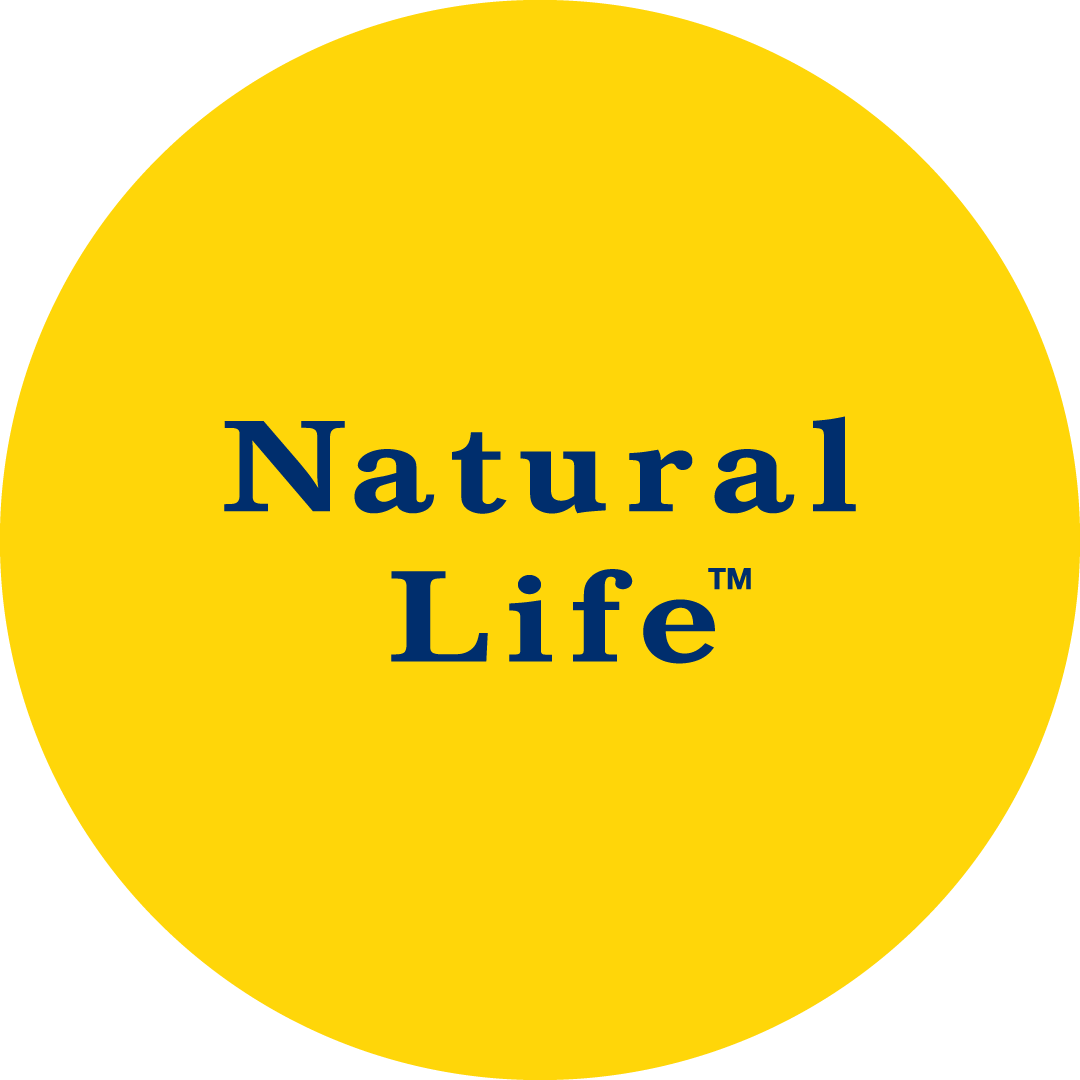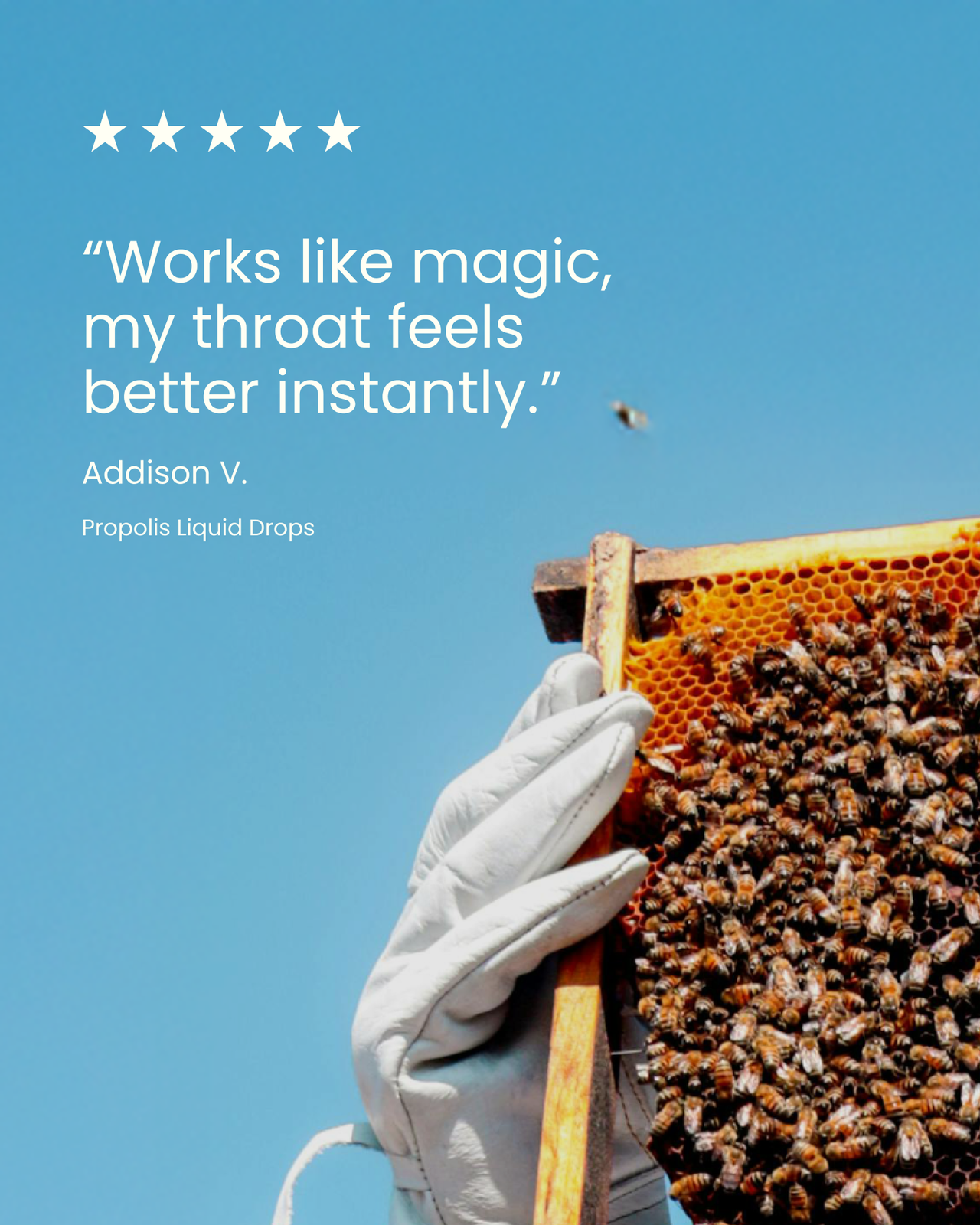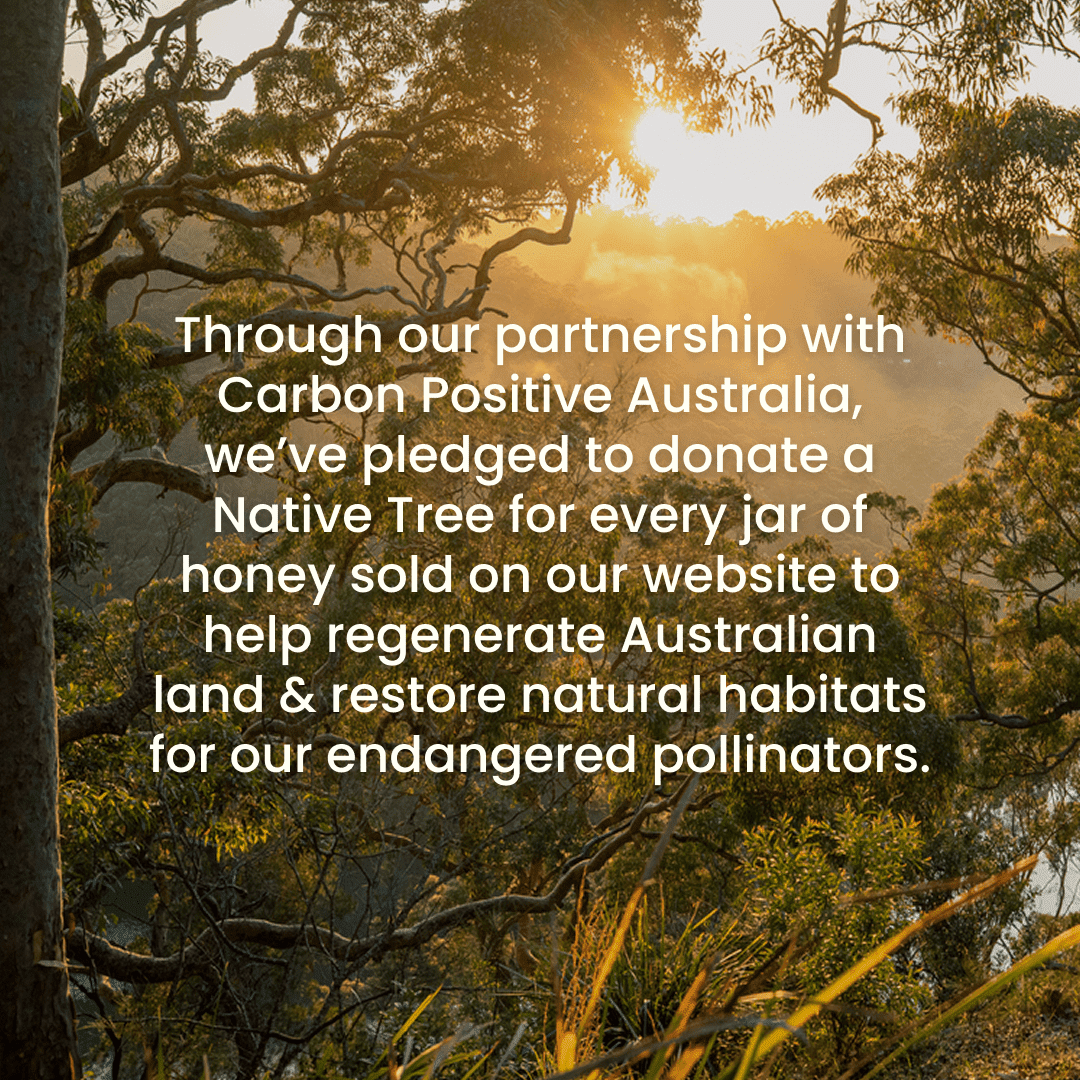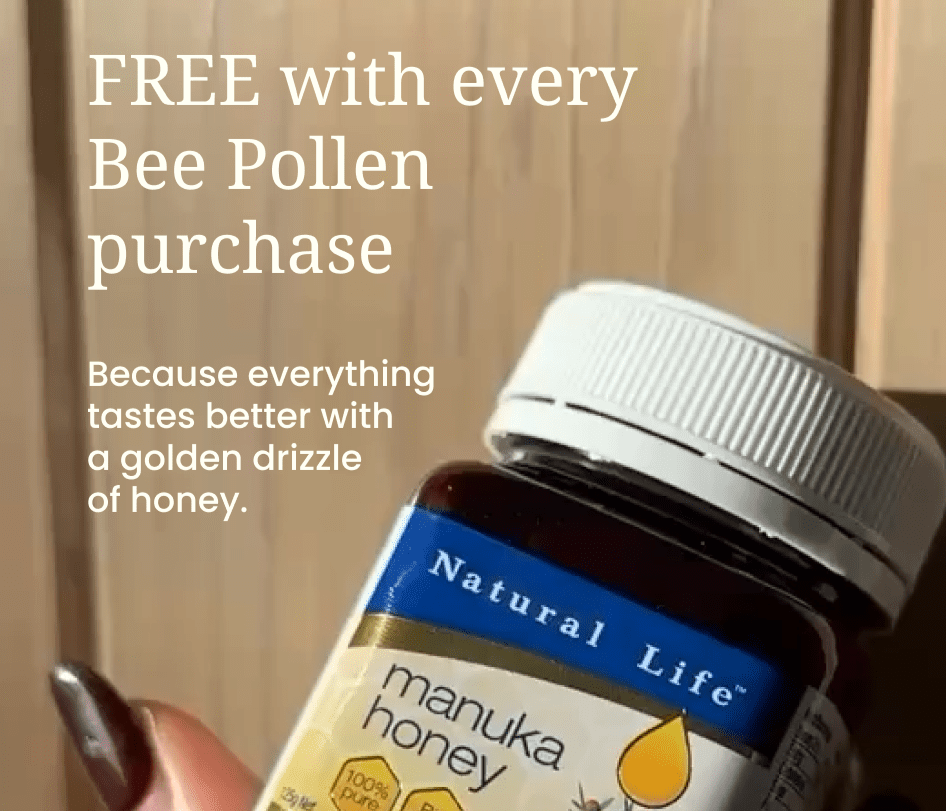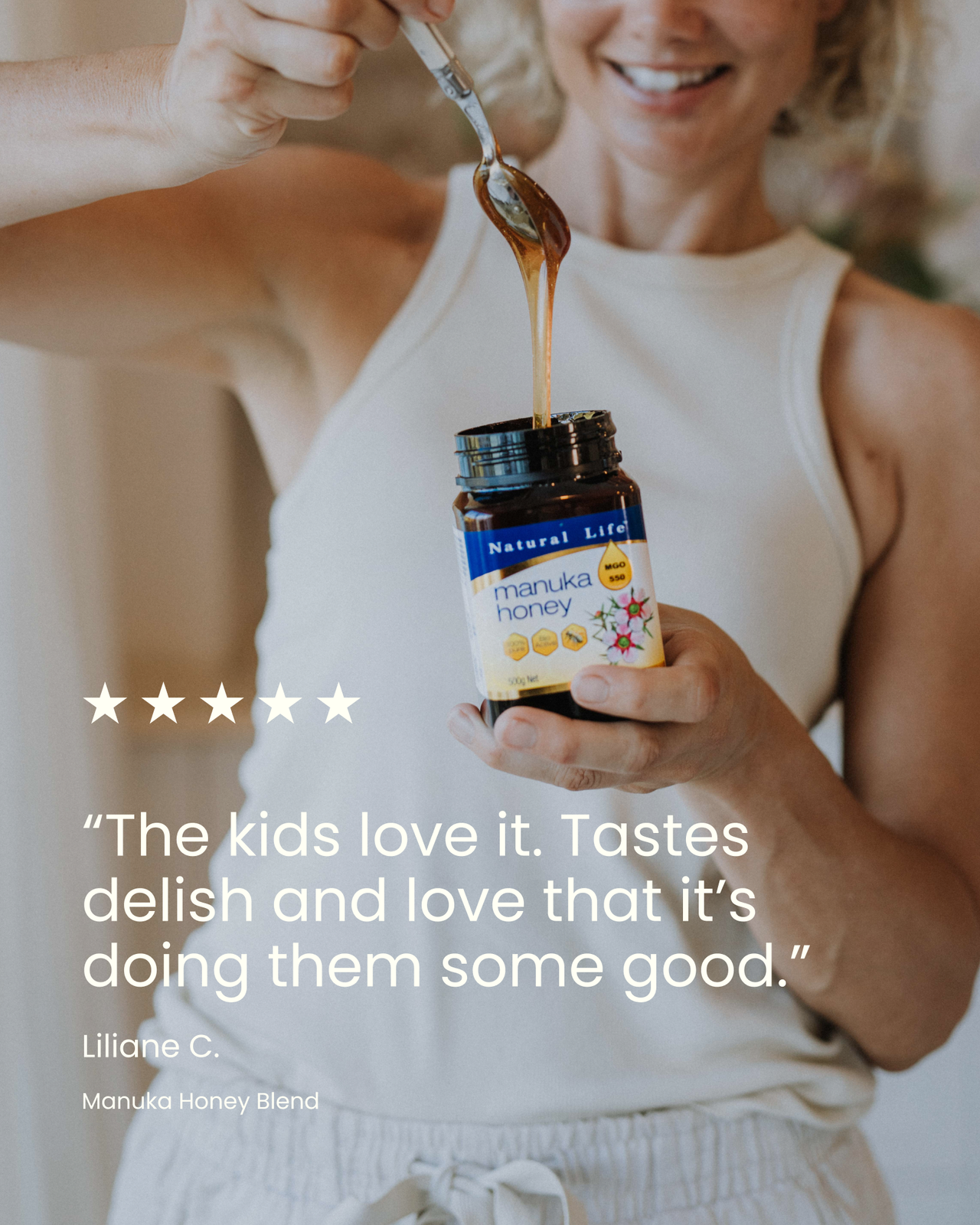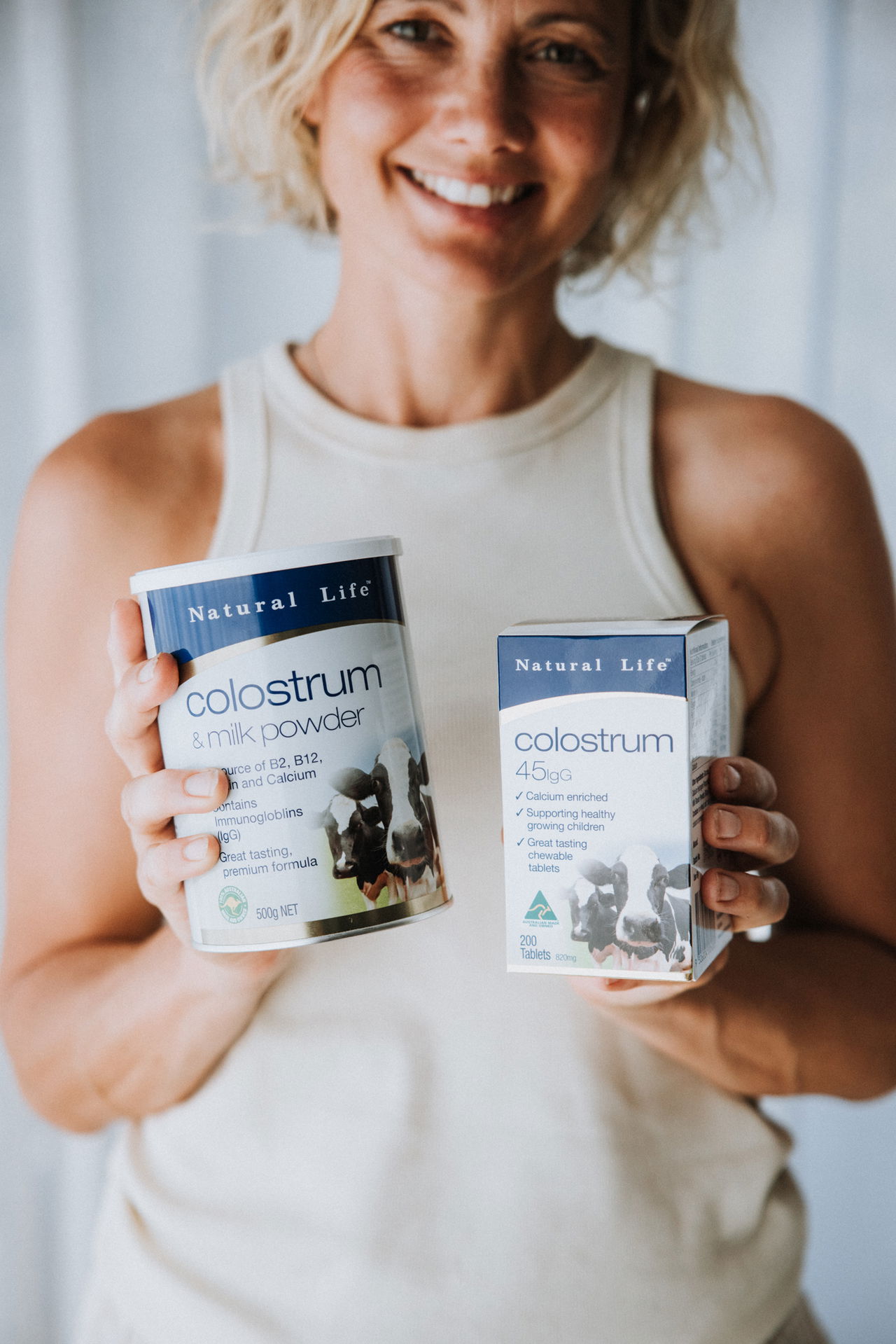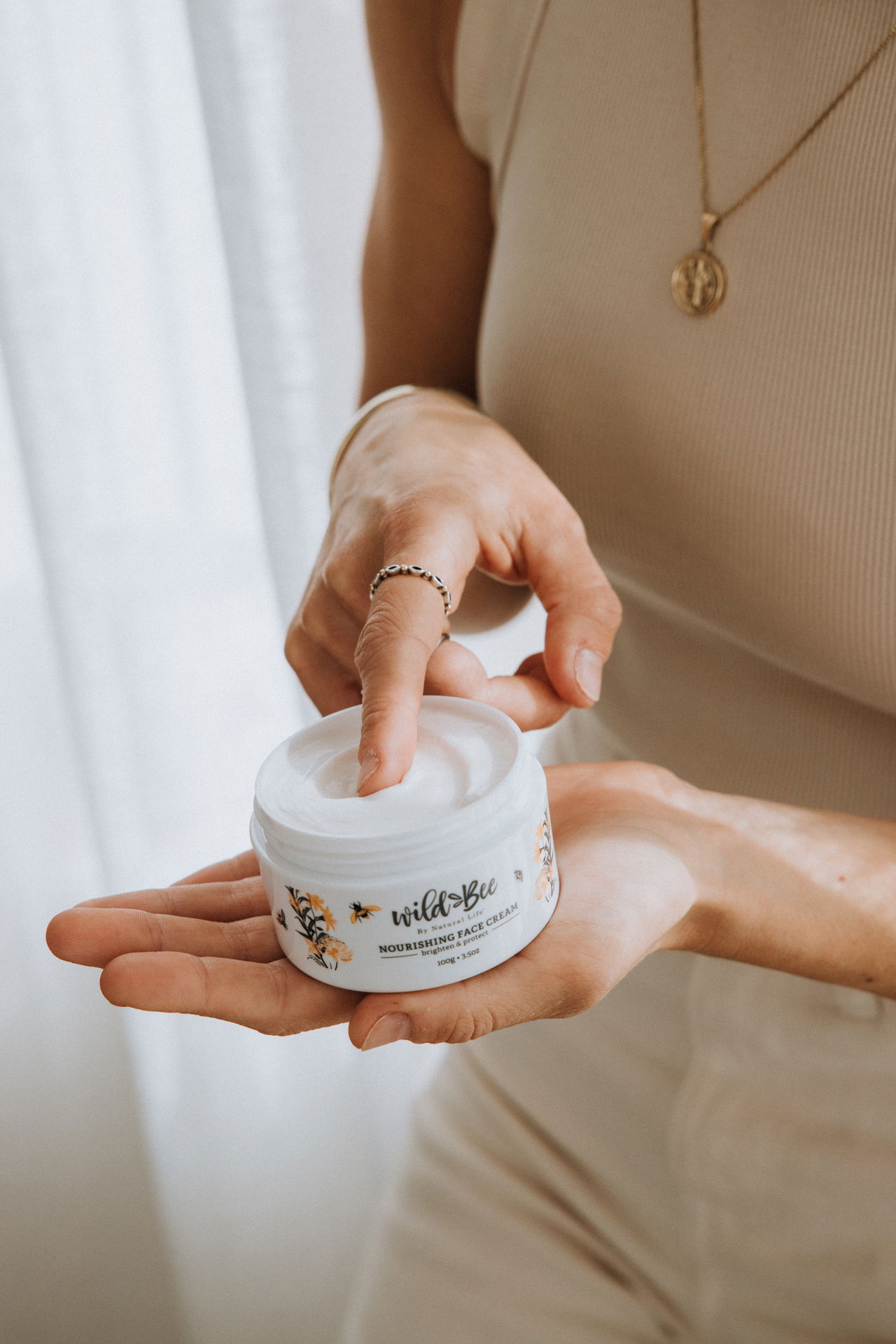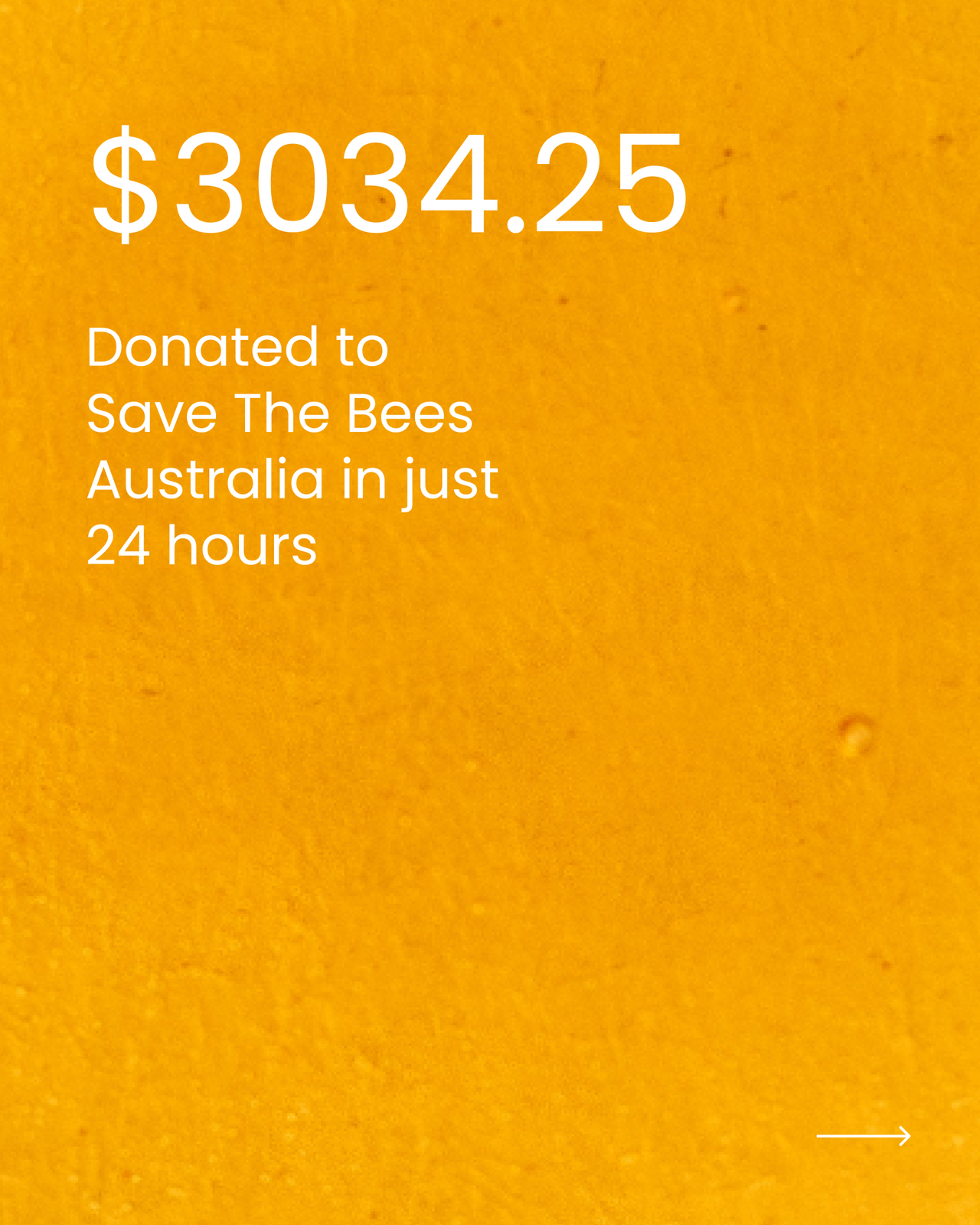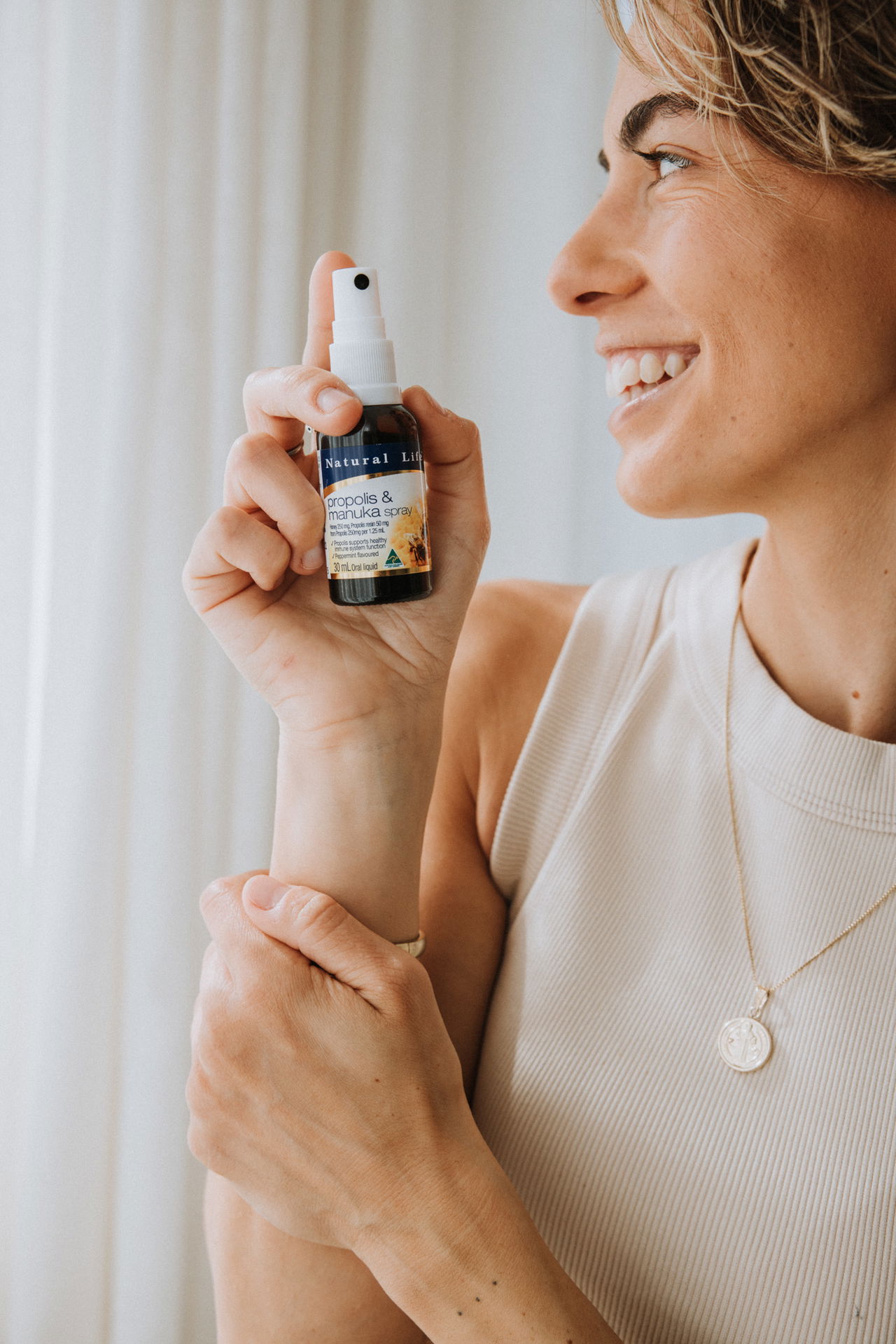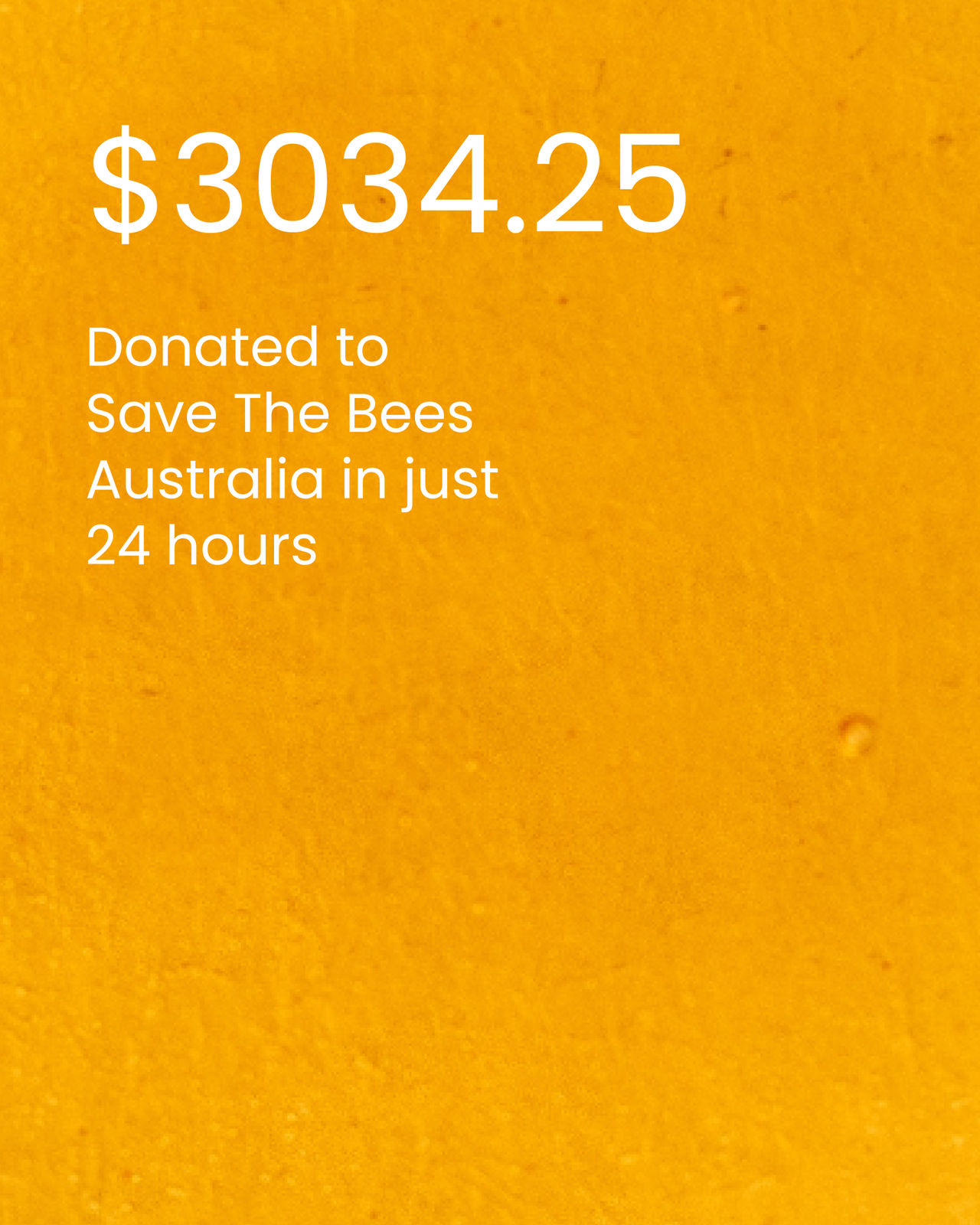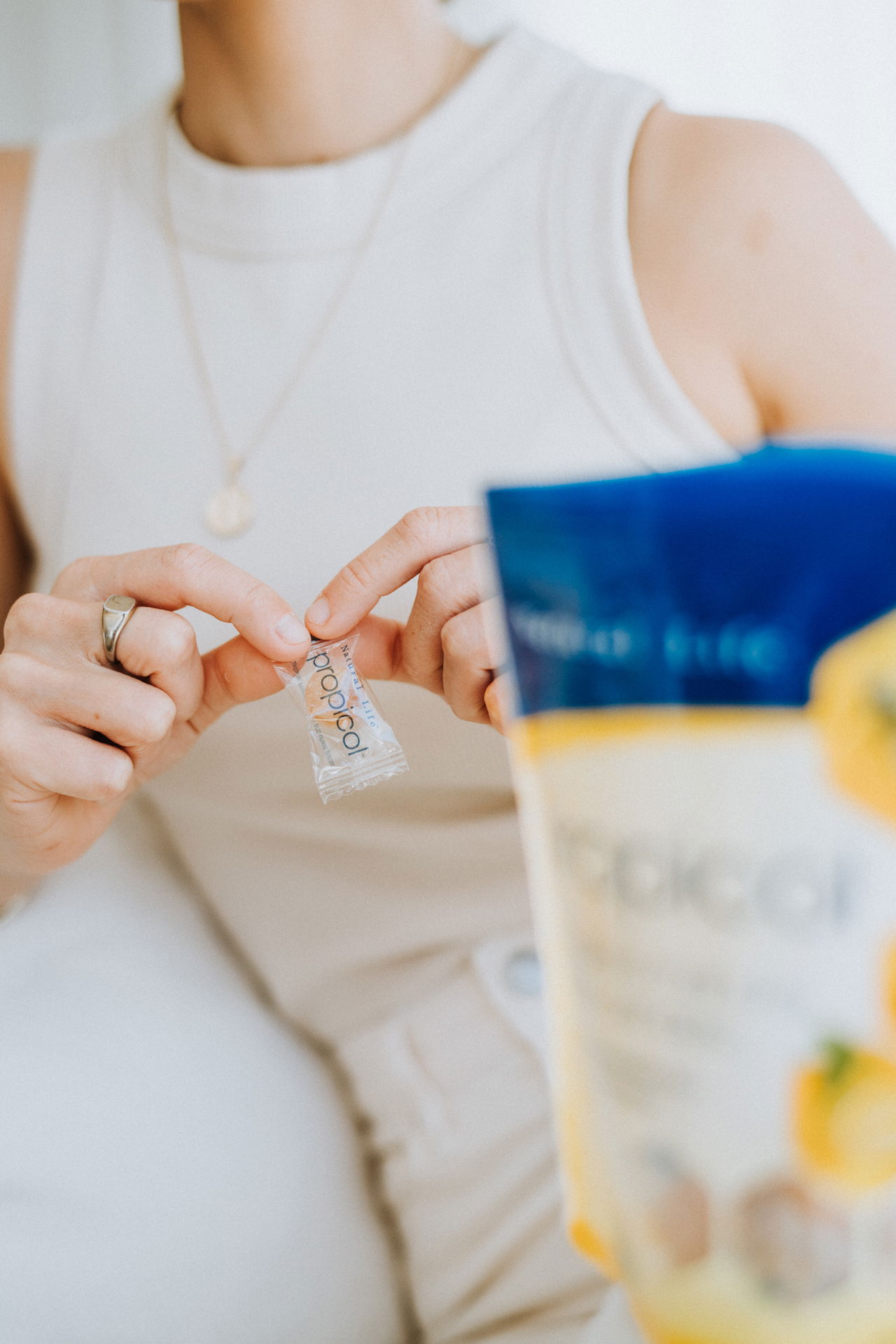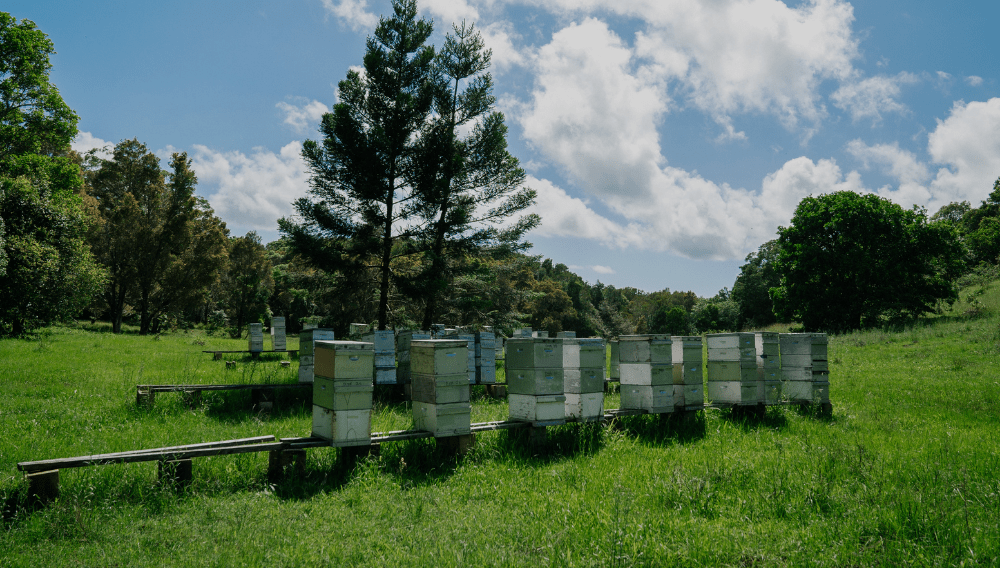If you’ve ever wondered whether bee pollen is good for energy, the short answer is: yes, and science backs it up.
Often referred to as nature’s multivitamin, bee pollen is a nutrient-dense superfood that fuels the body with a wide array of vitamins, minerals, amino acids, and enzymes. While athletes and health enthusiasts have been using it for decades to boost endurance and recovery, more Australians are now turning to bee pollen as a natural way to support sustained energy, without relying on synthetic supplements or caffeine.
What Actually Is Bee Pollen?
Bee pollen is a fine granular substance collected by honeybees from flowering plants. As bees land on flowers, they gather microscopic pollen grains, mix them with nectar and enzymes from their saliva (don't get spooked from this!), and transport the resulting granules back to the hive.
Inside the hive, this bee pollen becomes a protein-rich food source for young bees. For us, it’s one of the most complete natural foods available.
What makes bee pollen unique is its unmatched nutritional profile. It contains over 5000+ biologically active compounds, including:
-
All essential amino acids
-
B-complex vitamins (especially B1, B2, B3, B5, B6, B12)
-
Magnesium, iron, zinc, and potassium
-
Natural enzymes and antioxidants
-
Easily digestible proteins and healthy carbohydrates
📚 A 2022 study published in Frontiers in Pharmacology confirmed that bee pollen contains high levels of bioavailable nutrients that help modulate metabolic processes, immune function, and oxidative stress — all of which influence energy production.
Why Is Bee Pollen Good for Energy?
Let’s explore how bee pollen supports sustained, natural energy at a cellular level.
1. B Vitamins Support Energy Metabolism
B-complex vitamins — especially B1 (thiamine), B2 (riboflavin), B3 (niacin), and B5 (pantothenic acid) — are essential for converting carbohydrates, proteins, and fats into usable energy.
Bee pollen naturally delivers these vitamins in a balanced ratio, supporting optimal energy production without the crash that comes from synthetic stimulants.
🧠 B vitamins are also vital for brain function and nervous system health, making bee pollen useful for mental alertness and reducing fatigue-related brain fog.
2. High-Quality Proteins Aid Recovery
Each granule of bee pollen contains up to 35% protein — more than beef, eggs, or dairy on a gram-per-gram basis. This protein is in the form of free-form amino acids, meaning it’s already broken down for easy absorption.
Amino acids are the building blocks of muscles and tissues, making them crucial for physical recovery, especially post-exercise.
3. Iron + Magnesium for Oxygen Transport & Muscle Function
Iron is essential for healthy red blood cells, which carry oxygen throughout the body. Without enough iron, energy levels drop and fatigue sets in.
Magnesium, meanwhile, supports muscle contraction, nerve function, and ATP (your cells' energy currency) production. Bee pollen offers both minerals in naturally bioavailable forms.
4. Enzymes and Antioxidants Reduce Oxidative Stress
Oxidative stress is one of the biggest energy drains on the body. Bee pollen contains a wide range of antioxidants — including flavonoids and phenolic acids — that help protect your cells from damage.
It also contains enzymes like amylase, lipase, and catalase that assist in digesting nutrients more efficiently, ensuring your body makes the most out of every meal.
Does Bee Pollen Give You an Immediate Energy Boost?
While bee pollen isn’t a stimulant like caffeine, many users report a noticeable sustained increase in energy and mental clarity after regular use.
Because it supports energy at the cellular and nutritional level, its benefits tend to build over time — making it an excellent addition to your daily routine, especially if you're feeling rundown, overworked, or nutritionally depleted.
Some people do experience mild energising effects shortly after taking it, especially if consumed on an empty stomach or before physical activity.
Who Can Benefit From Bee Pollen for Energy?
✅ Busy professionals dealing with burnout and afternoon fatigue
✅ Athletes and gym-goers looking to support endurance, stamina, and post-workout recovery
✅ New parents needing extra nutritional support during sleep-deprived months
✅ Older adults seeking more vitality and immune support without synthetic formulas
How to Take Bee Pollen for Energy
Start low and go slow, especially if it's your first time. While bee pollen is a food (not a supplement), some individuals can be sensitive to pollens, especially if they have seasonal allergies. A patch test is always recommended.
Here’s how to incorporate it:
-
Granules: Start with ½ tsp daily and work up to 1–2 tsp per day
-
Capsules: Follow dosage on packaging — a good option if you don’t like the taste
-
Mix it into:
-
Smoothies
-
Yogurt bowls
-
Overnight oats
-
Salad dressings
-
On top of toast with raw honey
-
🐝 Pro tip: Take bee pollen in the morning or before physical activity for best results. Avoid taking it right before bed, as the energising nutrients may disrupt sleep in sensitive individuals.
Not All Bee Pollen Is Equal: Why Australian Bee Pollen Stands Out
Bee pollen imported into Australia must go through gamma irradiation, which may degrade its nutrient content.
At Natural Life, we source our bee pollen directly from Western Australia, where strict standards and local sourcing allow us to provide non-irradiated, nutrient-rich granules that retain their full enzyme and antioxidant profile.
We also avoid overharvesting to protect our bees and ensure long-term hive sustainability.
Final Thoughts: Is Bee Pollen Good for Energy?
Absolutely. Bee pollen is more than just a wellness trend — it’s a highly functional, nutrient-dense food that supports energy from the inside out. Whether you’re an athlete, a parent, or someone simply wanting to feel more alive throughout the day, this golden granule is worth a spot in your routine.
Shop our Western Australian Bee Pollen Granules. Receive a free jar of Manuka Honey (125g) with every order.
If you want to learn more about bee pollen, click here.

